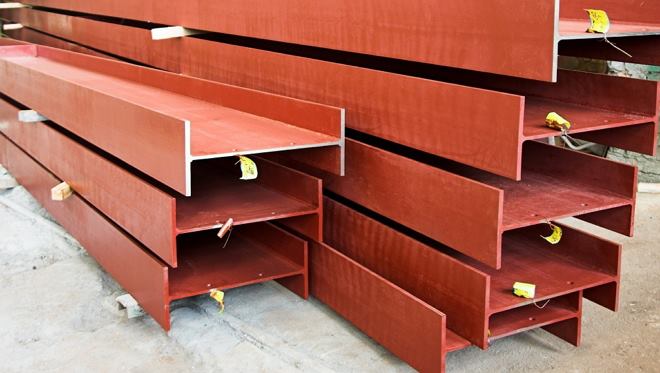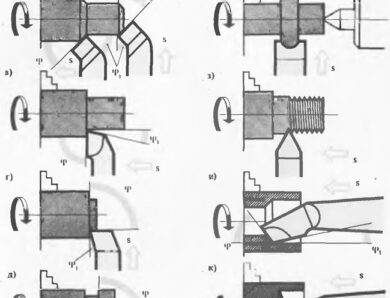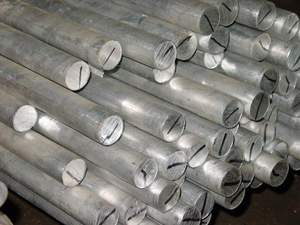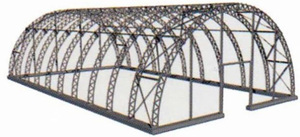Brands of electrodes for manual arc surfacing and welding: their species, marking and its decoding
Choosing electrodes for welding, special attention should be paid to labeling. The point is, that there is the most important information about the purchased electrodes, including the manufacturer, composition and other characteristics. If you focus on this information, then simplifies the task of choosing the most suitable material, which will provide a quality result when working in certain conditions with the planned connection of metals and alloys. To do this, before making a decision you need to carefully study the signs, which are located on the package.
Electrode welding
As the main consumable for manual arc welding, with the use of which today most often weld metals, use electrodes. In their content, they look like a metal rod or product, made of another material, which may or may not have coverage. One end of the bar must be covered. It is on this side that it is placed in the electric holder.
When performing welding work on the site, formed by the end of the electrode and the treated surface, an electric arc is formed. The process of joining surfaces using welding equipment takes place at elevated temperatures, at the same time substances, using which melting is performed, are exposed to too intense interaction in relation to each other.
Advantages of electrodes
Electrodes are the best consumable for welding for the following reasons:
- their use allows you to create a smooth weld, which has no time and is deprived of undigested areas.
- arc ignition does not require much effort. There are also no problems with its support.
- the use of electrodes allows you to create a uniform coating based on slag, which can be easily removed after welding.
The main purpose and composition of welding electrodes
According to its design, the electrode has the form of a rod, made of metal or other material, due to which the current reaches the welded product. For this reason, the processed material must have a high electrical conductivity. Most often, such structures are made on the basis of wire and alloys, having different levels of alloying.
To give the product the necessary characteristics, it has a special coating. Thanks to it the electrode perfectly transfers influence of gases, first of all, nitrogen and oxygen, and also helps maintain the stability of the arc, fight harmful impurities, contained in molten metal. The benefit of coverage is, the metal or alloy used for welding is enriched with the necessary alloying elements.
In general, it can be noted, that certain components must be present in the coating to provide the electrode with the required properties.
An important role is played by slag-forming substances, example, credit, marble, thanks to which high protection against negative influence from nitrogen and oxygen is provided, whose damage is due to oxidative processes. It is possible to release the molten metal from oxygen by means of such substances, as titanium ferroalloys, manganese, aluminum and silicon. The latter represent a group of deoxidizing substances, due to which the desired result is provided.
Special gas-forming components are used to create a protective gas environment, the most striking representatives of which are wood flour and dextrin. The task of providing the seam with exceptional characteristics in terms of wear resistance, not prone to corrosion, solved by introducing special alloying additives.
The list of these components is quite large, so we will list only some of them: chromium, titanium, nickel, vanadium, etc. The group of stabilizing substances is formed by potassium, sodium and calcium. The main effect is to ensure the ionization of the welding arc. Special binders must be used to establish a reliable connection between each coating component and the electrode rod, as which silicate glue is most often used.
Marking of welding electrodes and requirements for them
Classification of electrodes involves their division into two types:
- float;
- do not melt.
The first group includes products, made on the basis of such materials, like steel, copper, cast iron and bronze. A distinctive feature is the presence of additional coverage. A special group is formed by fused uncoated elements, however, they are most common as a wire for welding structures, carried out in a protective gas environment. The category of non-melting types of electrodes for welding should include products, created on the basis of such materials, like tungsten, thorium and lanthanum.
Another feature of the classification of welding electrodes may be the type of coating. Ware, in which the letter A is present in the marking, belong to the class of products with an acid coating. Such electrodes are undesirable for welding, carried out to connect steels, characterized by high concentrations of carbon and sulfur. If we talk about the spatial position, then there are no restrictions. The exception here is the vertical placement, when the electrode rises from top to bottom. Defects are most often found - the appearance of strong splashes and the risk of cracking the seam.
The letter B is used to denote the base coat. Welding electrodes with similar markings should not be used for welding in the vertical position. The same applies to those products, which have a rutile coating, which is indicated by the letter H. If the marking contains the letter C, then this is a hint about the use of cellulose coating. Such electrodes retain their performance in any position.
If we talk about their disadvantages, then this should include the formation of strong splashes and the risk of overheating, which is why they need special attention during work. The last group of electrodes is formed by products marked AC and RB. They are a combined option, which is used to connect pipelines and structures for various purposes. Working with them, keep that in mind, that it is inadmissible to place them in a ceiling position.
Getting acquainted with the features of these elements and their design, you can go to the requirements, to which they must correspond. Let's say, it is important to create favorable conditions for any welding electrode, in which the arc will burn stably, which in turn will ensure uniform melting of the metal. In addition, the created seam must meet the requirement for its chemical composition. The latter may include various components, determined by the operating conditions of the part and the composition of the hardware, which need to be connected.
Decoding of marking of electrodes for welding
It's time to get acquainted with it in more detail, what information is hidden by the marking of the electrodes for welding. It always starts with characters, corresponding to the type, containing a hint about the maximum load. Let's say, E46 talk about those, that for welded parts the maximum load makes 46 kg / mm2. It is already followed by the brand, reports on the manufacturer, and after it information on thickness and purpose is given:
- the presence of the letter B in the label indicates that, that the considered electrode is suitable for welding products, made on the basis of low-alloy and carbon steels;
- marking, containing the letter L, talk about it, that these electrodes can be used to connect alloyed structural alloys;
- if the task is to connect the structures, made on the basis of heat-resistant or high-alloy steels, the electrode used for welding must be marked T and B;
- qualitatively perform surfacing of the layer, which must have exceptional properties, possible provided, that the electrode used is marked in the form of the letter H.
Thickness, diameter, current
The label also gives a hint about the thickness of the coating, for which it provides the following designations:
- M - means a thin coating;
- C - average coverage;
- D - it corresponds to a thick coating;
- P - indicates the presence of a coating of maximum thickness.
Further in the marking the information on diameter is given. Sometimes it may not contain numeric symbols, this information can only be provided as an icon. In this case, it is necessary to conclude, that the required data are printed. The next characters are the index and its value, by which you can understand the characteristics of the metal. We are talking about such properties, as a relative elongation, toughness and tensile strength. For more accurate information about these parameters, please refer to GOST 9467-75.
At the very end there is information about the type of coating, which was discussed above. The last two figures are understandable, what spatial position is provided for the electrode of a particular brand and what is the recommended value of the operating current.
If there is a number 1, If there is a number. 2 If there is a number.
If there is a number 3, If there is a number, If there is a number. If there is a number 4 If there is a number, If there is a number, If there is a number.
If there is a number, If there is a number, If there is a number:
- 1, 4, 7 If there is a number;
- 2, 5, 8 - applies to direct currents and other types of polarity;
- 3, 6, 9 - predicts, that the current must have the opposite polarity.
Conclusion
Welding is impossible without the use of such important consumables, as electrodes. At the same time its value cannot be underestimated, because the quality of the connection of the treated surfaces depends on the correct choice. The presence of different markings of the electrodes already allows us to talk about it, that they have different purposes. For this reason, it is important to have an idea, which means this or that marking. Knowing about such notations, can be easily understood, which electrode is suitable for welding and make the right choice.




